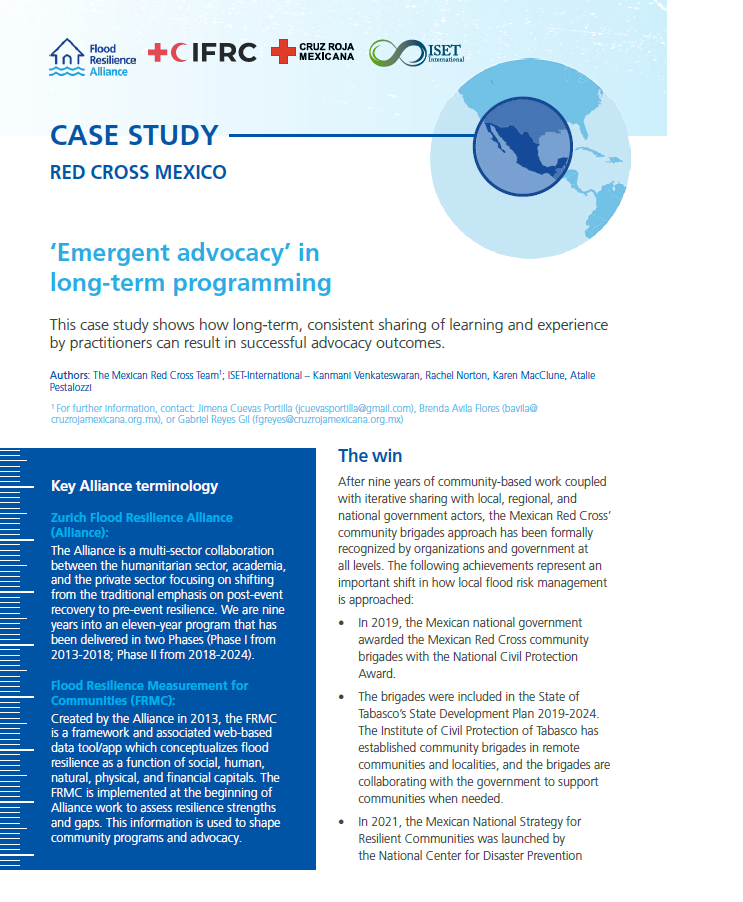Case Study
‘Emergent advocacy’ in long-term programming

After years of community-based work coupled with iterative sharing with local, regional, and national government actors, the Mexican Red Cross’ community brigades approach has been formally recognized by organizations and government at all levels. This achievement represents an important shift in how local flood risk management is approached. This case study shows how long-term, consistent sharing of learning and experience by practitioners can result in successful advocacy outcomes.
